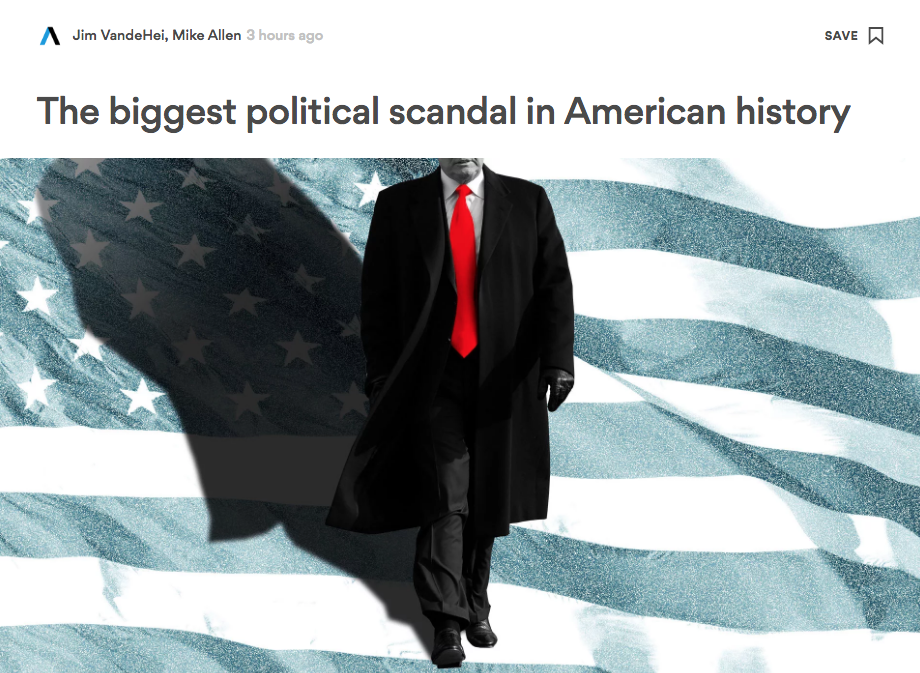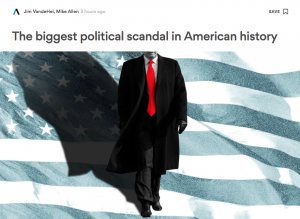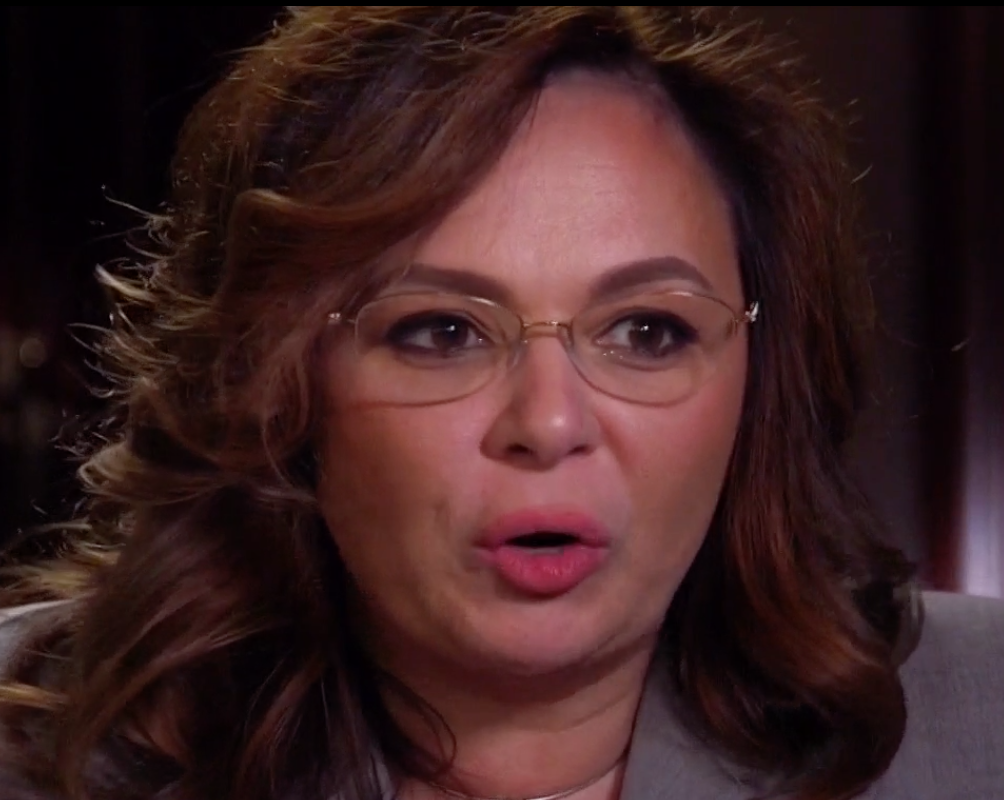How to Read the Mueller Report
Politico has a piece describing how key players will read the Mueller report that starts by admitting the usual workaround — reading the index — won’t work.
The capital has already evolved one model for processing a big tell-all book: “the Washington read,” where you scan the index (assuming there is one) to find everything it says about you, your boss and your enemies and then fake like you’ve read the rest. But this time that won’t be enough. The goods might not come easily. They might be buried in an obscure subsection. And there’s way more at stake than in the typical gossipy memoir.
Further down, David Litt graciously included me on a list of legal and analytical voices he’ll turn to to help understand the report.
Former Obama White House speechwriter David Litt will have Twitter open while he’s making his way through the report, watching in particular for posts from several of the more prominent legal and analytical voices who have narrated the story’s plot twists as it evolved: Ken White (@popehat), Mimi Rocah (@Mimirocah1), Renato Mariotti (@Renato_Mariotti), Marcy Wheeler (@emptywheel), Neal Katyal (@neal_katyal) “for the definitive word on special-counsel regs” and Nate Silver and FiveThirtyEight “to think through the political implications.”
Since most of the methods described by Politico’s sources actually will be counterproductive for anything but rushing a self-serving message to the press, I thought I’d lay out some tips for how I’ll read it.
Understand what the report is and is not
Even before Barr releases the report, those planning on reading it would do well to reflect on what it is — and what it is not. It is, by regulation, a report on the prosecutions and declinations the Mueller team took during their tenure.
It is not supposed to be, contrary to many claims, a report on everything that Mueller discovered. Already there have been hints that it will not include the second half of Rod Rosenstein’s mandate to Mueller — to figure out the nature of links between Trump’s team and Russia. If that stuff is excluded, then it probably will get reported, secretly, to the Intelligence Committees and no further. That’s important because the stuff that would compromise Trump — but would not necessarily implicate him in a crime — may by definition not show up in this report (though the stuff specifically relating to Trump may show up in the obstruction case).
Finally, it’s unclear how much Mueller will include about referrals and ongoing investigations. I expect he’ll include descriptions of the things he and Rosenstein decided deserved further prosecutorial scrutiny but did not fit under the narrow rubric of whether Trump’s team coordinated or conspired with the Russian government on the hack-and-leak. But with the sole exception of three known referrals: the hush payments negotiated by Michael Cohen, the prosecution of Mike Flynn partner Bijan Kian, and the prosecution of Sam Patten, I expect any discussion of these matters to be redacted — appropriately so.
Map out what we already know about prosecutorial decisions
Since the report is by regulation supposed to describe the prosecutorial and declination decisions, we already know much of what will show up in the report, because Mueller has helpfully showed his prosecutorial decisions right here on his webpage. Here are some questions we should expect the report to answer (working from the bottom):
Papadopoulos
- Why did Mueller consider George Papadopoulos’ lies to the FBI material to the investigation? [Note, Mueller has already answered this in Papadopoulos’ sentencing memo.]
- Did Mueller find any evidence that Papadopoulos had passed on news that Russia was planning to dump emails pertaining to Hillary in an effort to help Trump? What did those people do with that information?
- What did the investigation of Sergei Millian, who started pitching a Trump Tower deal and other seeming intelligence dangles to Papadopoulos in July 2016 reveal? [This is a subject that may either be redacted, referred, or treated as counterintelligence saved for the Intelligence Committees.]
Mike Flynn
- Why were Flynn’s lies about assuring Sergey Kislyak that Trump would revisit sanctions deemed material to the investigation? [Note, Mueller has already answered this in Flynn’s sentencing memo, but it is significantly redacted]
- Why did Mueller give Flynn such a sweet plea deal, as compared to his partner Bijan Kian, who was named a foreign agent? What information did he trade to get it? [Some of this is included in his sentencing memo — because he flipped early, it led others to correct their lies — but key parts of it remain redacted.]
- What other Trump aides (like KT McFarland) lied about the same topics, and why were their attempts to clean that up before being charged deemed sufficient to avoid prosecution?
There’s likely a great deal pertaining to Flynn — likely including the third topic on which he cooperated — that will be deemed counterintelligence information that will be briefed to the Intelligence Committees.
Richard Pinedo
- Why did Mueller prosecute Pinedo as part of his investigation?
- How did Mueller determine that Pinedo had not wittingly worked with Yevgeniy Prigozhin’s trolls?
There’s likely some counterintelligence information about how the trolls duped Pinedo and how the US might shore up that vulnerability, but given the focus on the trolls, I expect FBI has already briefed that to the Intelligence Committees in substantial part.
The Internet Research Agency
- Given that Russia’s activities weren’t under the original scope of Mueller’s investigation; why did the trolls get moved under him? [The answer may be because of the Trump people found to have interacted with the trolls.]
- Why did Mueller consider prosecuting Concord Management worth the headache?
- How much of the relationship between Yevgeniy Prigozhin and Putin impacted this prosecution?
- What did the three Trump campaign officials in Florida described in the indictment do after being contacted by the trolls about events in August 2016? Did any other people in the campaign join in the efforts to coordinate with the trolls? Why weren’t they prosecuted? [Whether the names of these three people are unredacted will be one of the more interesting redaction questions.]
- Why weren’t the Trump and other political activists prosecuted?
We already know the answer to why Americans (save Richard Pinedo) were not prosecuted in this indictment: because they did not realize they were coordinating with Russian-operated trolls, and because, unlike Pinedo, nothing about their activities was by itself illegal.
There’s likely to be a lot of counterintelligence information on this effort that has been shared with the Intelligence Committees in ongoing fashion.
Alex van der Zwaan
- Why did Mueller prosecute van der Zwaan himself, rather than referring it (as he did with Greg Craig and the other Manafort-related corruption)? Did that have to do with van der Zwaan’s independent ties with either Konstantin Kilimnik or his father in law, German Khan?
Rick Gates and Paul Manafort
- Why did Mueller keep both Gates and Manafort prosecutions (the tax fraud prosecuted in EDVA and the FARA and money laundering violations in DC) himself? Was this just an effort to flip both of them, or did it pertain to an effort to understand the nature of their relationship with Kilimnik and a bunch of Ukrainian and Russian oligarchs?
- What continuity is there between the methods and relationships involved in Manafort’s work in Ukraine with that he did for Trump?
- What did Mueller get out of the cooperation agreements with Gates? This will be extensive! But a lot of it may be redacted because it pertains to counterintelligence or ongoing investigations.
- What did Mueller get out of the failed cooperation agreement with Manafort? Part of this, too, is counterintelligence, plus Manafort appears to have made it through one grand jury appearance on November 2 without lying. But that topic may be redacted as either as part of either counterintelligence or ongoing investigations.
Konstantin Kilimnik
Because he charged Kilimnik and Kilimnik was so central to so much of his investigation, Mueller could describe why the government believes Kilimnik has a tie with the GRU. He likely won’t.
GRU hack indictment
- Russia’s activities weren’t under the original scope of Mueller’s investigation; why did the GRU hack get moved under him? [The answer may be because Roger Stone and Lee Stranahan and Trump — in his encouragement — were implicated.]
- Why weren’t WikiLeaks and/or Assange charged in the indictment?
- What was the nature of Stone’s ties to Guccifer 2.0?
- Was there reason to believe Trump knew GRU would respond to his encouragement?
- How did the GRU operation link up with the activities of other people suspected to have ties to GRU, like the broker on the Trump Tower deal, Kilimnik, and a Mike Flynn interlocutor?
- How did Mueller assess whether and how Russia used the data stolen from the Democrats, especially the analytics data stolen in September?
- Did the data Kilimnik received from Manafort and shared with others make its way into GRU’s hands?
Michael Cohen
- Why were Cohen’s lies about the Trump Tower deal deemed material to the investigation? [Unlike with Flynn and Papadopoulos, Mueller didn’t really explain this in the sentencing memo.]
- Why was Cohen charged with lying, but not those he conspired to lie with, including Jay Sekulow, Don Jr, and the President?
- What other details of Trump’s business dealings did Cohen share?
Roger Stone
- Why were Roger Stone’s lies to Congress deemed material to the Mueller investigation?
- From whom did Stone and Jerome Corsi learn what GRU and WikiLeaks were planning to release?
- Did Stone succeed in holding the release of the Podesta emails to dampen the Access Hollywood video release, as Corsi alleges?
- What was Stone trying to hide when he had Corsi write a cover story for him on August 30, 2016?
- Why didn’t Stone’s coordination to optimize WikiLeaks’ releases amount to coordination with Russia?
- Why weren’t Corsi and Randy Credico (the latter of whom Stone accuses of lying to the grand jury) charged?
- Why wasn’t Assange charged in conjunction with Stone?
Stone is still awaiting trial and prosecutors have just told the press that Stone remains under active investigation. So I expect virtually all the Stone section to be redacted.
Map out the big questions about declinations
Mueller will also need to explain why he didn’t charge people he investigated closely. This is another section where the fight over redactions is likely to be really heated.
Trump on obstruction and conspiracy
- Did Mueller consider Trump’s enthusiastic encouragement of Russia’s operation and his move to offer Russia sanctions relief from a prosecutorial standpoint (that is, a quid pro quo trading the Trump Tower deal and election assistance for sanctions relief)? If so, what were the considerations about potential criminality of it, including considerations of presidential power? If not, was any part of this referred?
- What was the consideration on Trump and obstruction? Did Mueller intend to leave this decision to Congress? [The report will not answer the second question; if Mueller did intend to leave the decision to Congress, as his predecessors Leon Jaworski and Ken Starr did for good Constitutional reasons, he will not have said so in the report.]
Paul Manafort on quid pro quo
- Was Mueller able to determine why Manafort shared polling data with Konstantin Kilimnik on August 2, 2016? Did he know it would be shared with Russians close to the election interference operation? Did he agree to a quid pro quo involving the Ukrainian peace deal as sanctions relief he pursued for another 20 months? Did Manafort’s lies prevent Mueller from answering these questions?
- What was the nature of and what was ultimately done with that polling data?
- Why didn’t Mueller charge this as conspiracy or coordination? Did it have to do with Manafort’s lies and Gates’ limited credibility?
The June 9 meeting and follow-up
- What consideration did prosecutors give to charging this as an instance of conspiracy or coordination?
- What consideration did prosecutors give to charging the public claims about this meeting as an instance of false statements?
- Did Trump know about this meeting and if so did that change the calculus (because of presidential equities) on a quid pro quo?
- Did Mueller decide Don Jr is simply too stupid to enter into a conspiracy?
- Did Mueller consider (and is DOJ still pursuing) prosecutions of some of the members of the Russian side of this meeting? [Note that Barr did not clear all US persons of conspiracy on the hack-and-leak; Emin Agalarov canceled his concert tour this year because his lawyer said he’d be detained, SDNY’s indictment of Natalia Veselnitskaya treats her as a Russian agent, and Rinat Akhmetshin and Ike Kaveladze may both have exposure that the Trump flunkies would not.]
The Seychelles meeting and related graft
- Did Mueller decide the graft he uncovered was not criminal, not prosecutable, or did he refer it?
Carter Page
I, frankly, am not that interested in why Mueller didn’t prosecute Carter Page, and this section might be redacted for his privacy. But I am interested in whether leaks played a part of it, or whether Russians used him as a decoy to distract from where the really interesting conversations were happening.
Understand referrals and ongoing investigations, to the extent they’re included
As noted above, Mueller may have included a description of the referrals he made and the ongoing investigations that reside with some of his prosecutors and/or the DC AUSAs brought in to pick up his work. This includes, at a minimum:
- Inauguration graft
- Potential Don Jr and Jared Kushner graft
- Mystery Appellant
- Ongoing Stone investigations
- The Cohen hush payments
- Bijan Kian’s prosecution
- Sam Patten’s prosecution
- Other Manafort graft, including potential coordination with states
- Tom Barrack’s graft
- Greg Craig, Tony Podesta, Vin Weber, Steve Calk
- Konstantin Kilimnik (which is likely a counterintelligence investigation, not a criminal one)
One big question I have is whether any criminal conduct with Russia that doesn’t involve the election would be covered by this report, referred, or considered an ongoing investigation??
While we should expect details of the decision to refer the Cohen, Bijan Kian, and Sam Patten prosecutions, most of the rest of this would likely be redacted (including the Craig prosecution, since it only just got indicted).
Understand the structure of the report
Having prepped yourself for what to expect in the report (and what won’t be there, like the counterintelligence stuff), you can now start by reviewing the structure of the report. Bill Barr claims the report is split into two sections, the Russian interference and Mueller’s thinking on obstruction. That may or may not be true — it’s one thing to assess when first reviewing the report.
One particularly interesting question will be the extent to which Mueller included stuff that might otherwise be counterintelligence information — things Russia did that would compromise or embarrass Trump — in the obstruction section.
Another thing to do while understanding the structure of the report is to see where all the things that must be in there appear. This will be particularly helpful, for example, in figuring out where what is sure to be a lot of redacted content on Roger Stone appears.
Do a first read of the report, paying particular attention to the footnotes
I find it really useful to share screen caps of what I’m finding in a first read, either on Twitter (for crowd sourcing) or in a working thread. The press flacks will do the work of finding the key takeaways and running to the cable news about them. Better to spend the time finding the details that add nuance to claimed takeaways, if only because adding nuance to claimed takeaways quickly helps avoid an erroneous conventional wisdom from forming.
Develop theories for redacted content
You’re not going to be able to prove what lies behind a redaction unless Mueller and DOJ commit redaction fail (they’re not Paul Manafort trying to signal to co-conspirators, so that won’t happen) or unless they accidentally leave one reference out. But based on the grammar of sentences and the structure of the report and — hopefully — Barr’s promised color coding of redactions, you should be able to develop theories about what generally is behind a redaction.
Identify big redacted sections
There may be sections that are both entirely redacted about which no clues as to the content exist. At the very least, identify these, and at least note where, structurally, they appear, as that may help to explain what big questions about the Mueller report are outstanding.
Read it again
I know most editors in DC won’t pay for this, which is why reporting on documents is often less rigorous than journalism involving talking to people. But for documents like this, you really need to read iteratively, in part because you won’t fully understand what you’re looking at until reading the whole thing a first time. So after you read it the first time, read it again.
As I disclosed last July, I provided information to the FBI on issues related to the Mueller investigation, so I’m going to include disclosure statements on Mueller investigation posts from here on out. I will include the disclosure whether or not the stuff I shared with the FBI pertains to the subject of the post.







